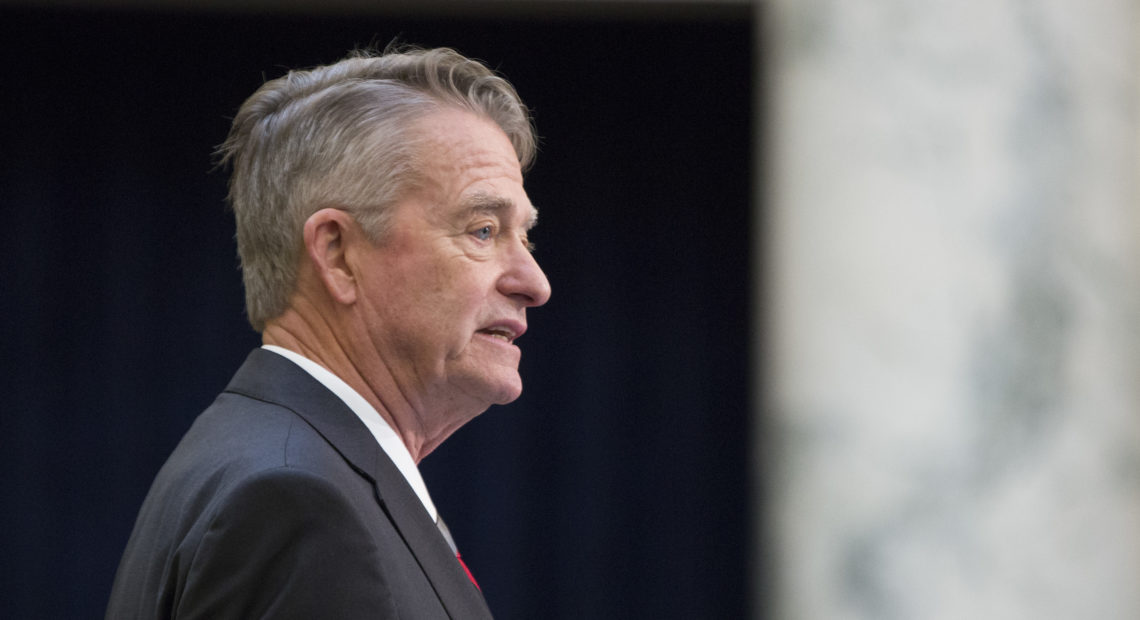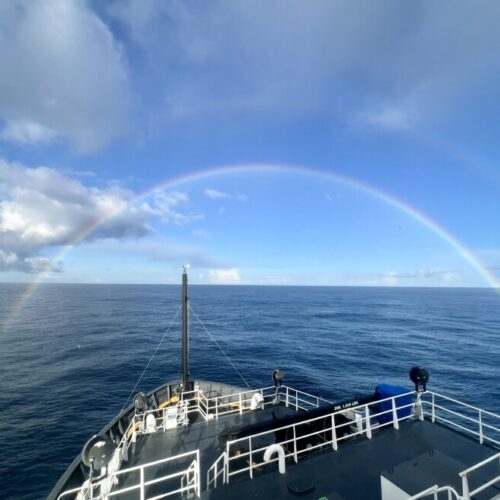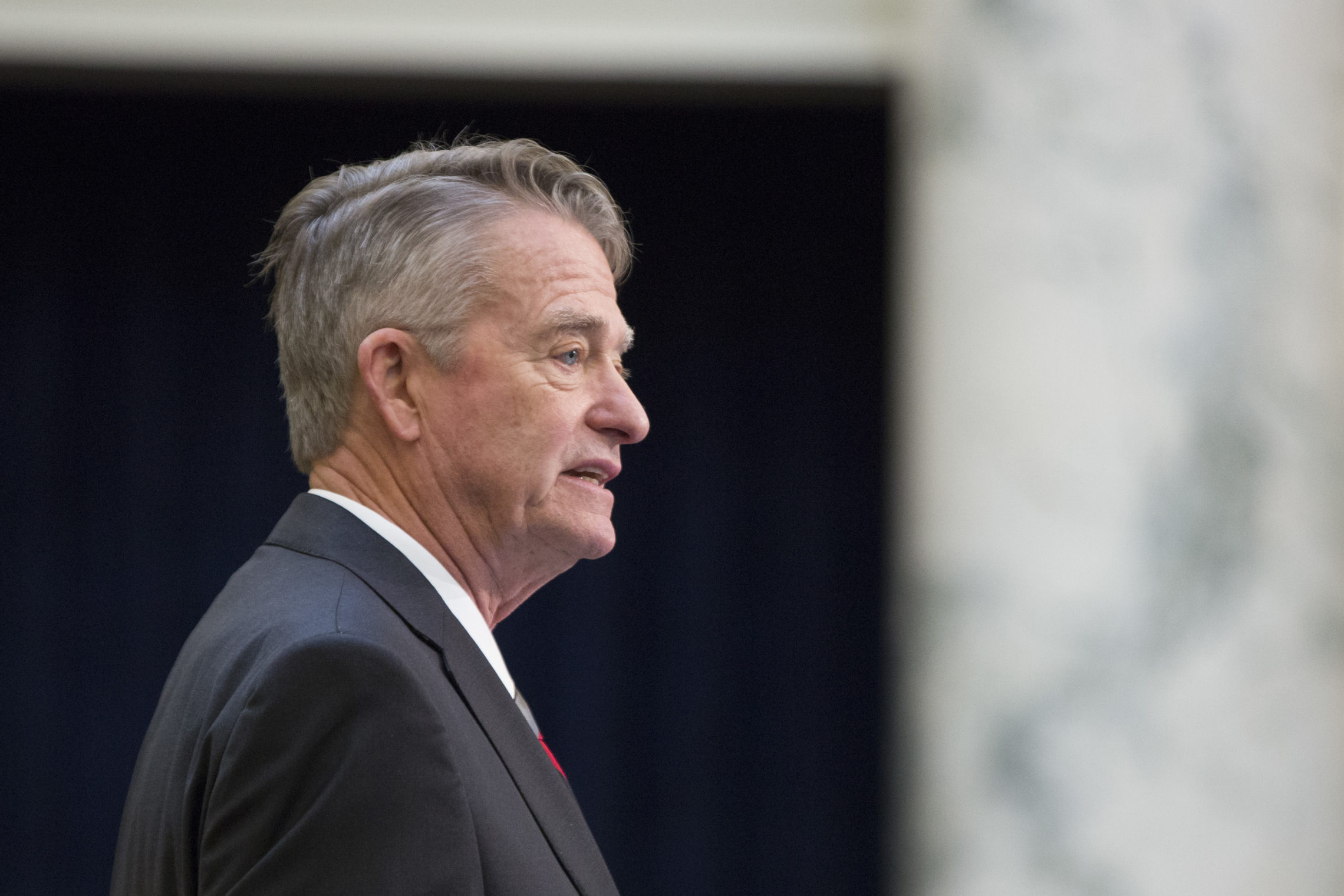
Idaho Gov. Brad Little: Climate Change Is Real, Must Be Addressed
BY KEITH RIDLER/AP
Idaho’s collaborative efforts with federal agencies, conservation groups, industries and residents have put Idaho out front in tackling tough environmental problems involving forests, rangelands, water uses and other issues, Gov. Brad Little said Wednesday.
The 64-year-old Republican sworn into office earlier this month shocked some at the Idaho Environmental Forum by declaring that climate change is real and will have to be dealt with.
Speaking on the 17th floor of the Zions Bank in Boise with the snowcapped Boise foothills as a backdrop, Little responded to a question from the audience about climate change by recalling the deep snow he had to work in during the winters while growing up on a ranch. He said those types of winters are less frequent.
“Climate is changing, there’s no question about it,” he said. “Sometimes what you do from a regulatory standpoint might be counter to what the right thing to do is, but you’ve got to recognize it. It’s here. We’ve just got to figure out how we’re going to cope with it. And we’ve got to slow it down. Now, reversing it is going to be a big darn job.”
Little said the state has made good progress in working with agencies in the U.S. Department of Interior and U.S. Department of Agriculture.
“I’m pretty optimistic,” he told the crowd of more than 300. “When I visit at the federal level, both at the Interior and Agriculture, they appreciate what’s taking place in Idaho. We’ve got a long way to go but I like the trajectory about what’s taking place.”
He cited a program called the Good Neighbor Authority that has the Idaho Department of Lands helping the Forest Service on federal timber sales and restoration projects. Last month, Little, then lieutenant governor, signed with then-Gov. C.L. “Butch” Otter a Shared Stewardship agreement with the Agriculture Department they said will help protect national forests in Idaho from destructive wildfires through logging and restoration work.
Conservation groups are generally supportive of the agreement, but have said they will be vigilant about where logging occurs, especially if it involves older growth.
Little also noted that Rangeland Fire Protection Associations comprised of local ranchers are helping protect some 14,000 square miles (36,000 square kilometers) from wildfires, much of that land administered by the U.S. Bureau of Land Management. Some of that land is in key sage grouse habitat, a chicken sized bird that has suffered a dramatic population drop in recent decades and has been considered for federal protection under the Endangered Species Act.
“Besides the 9 million acres, it’s built incredible goodwill between the BLM and the ranching and farming community,” said Little, a rancher from Emmett. “And that’s a good thing.”
Idaho has many collaborative groups involved in what types of activities go on in national forests and federal rangelands. Little said some groups have had trouble with stalled meetings without much progress before success.
“Sometimes the magic just happens,” he said. “Sometimes people get to the point where things really happen on the land and progress moves forward.”
A big part of that, he said, is accountability.
“It is really important that we justify to the federal taxpayers what we’re doing on Idaho landscapes,” he said. “What we’re doing to make it better for ourselves and, more importantly, for the next generations. That there’s buy-in from all the people who participate.”
Little also repeated a goal he mentioned in both his inaugural address and State of the State speech.
“My one thing is that I want to create an environment for our kids to stay here,” he said. “I know if they’re going to stay here, they’re going to want to maintain the quality of life.”
Copyright 2019 Associated Press

Ocean conditions mixed for salmon, leading to average salmon returns
NOAA biologist Brian Burke says mixed ocean conditions may lead to average salmon runs, but climate change is disrupting ecosystems—making continued research critical.

How does climate affect your life? Tri-Cities survey open now
Cities, towns and counties are starting to plan for a future with climate change. Now, the Tri-Cities area is asking people about regional hazards and historical trends. (Credit: Simon Foot

Canadian leaders hope trade negotiations won’t derail Columbia River Treaty
A view of the Columbia River in British Columbia. The Columbia River Treaty is on “pause” while the Trump administration considers its policy options. However, recent comments by President Donald
















